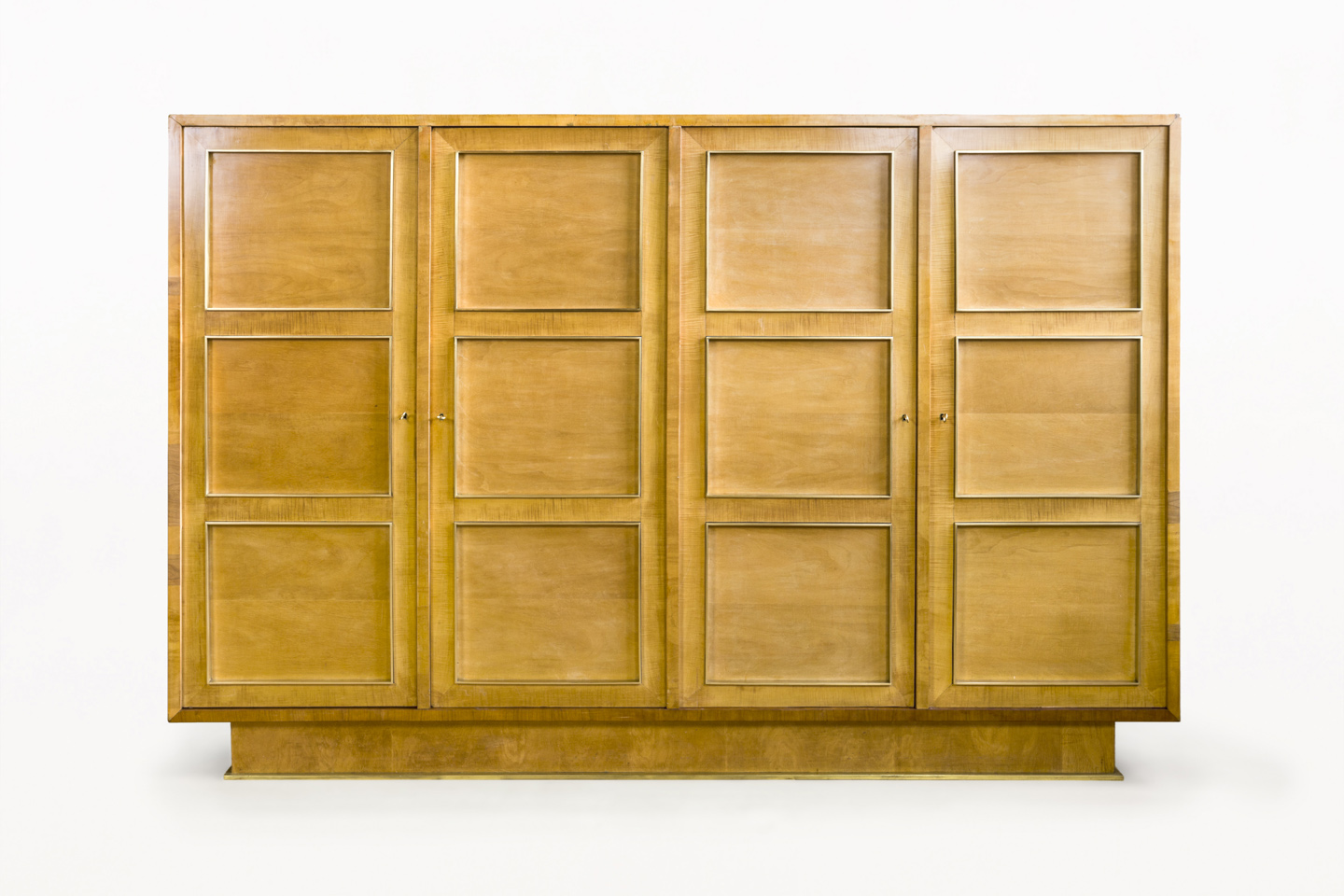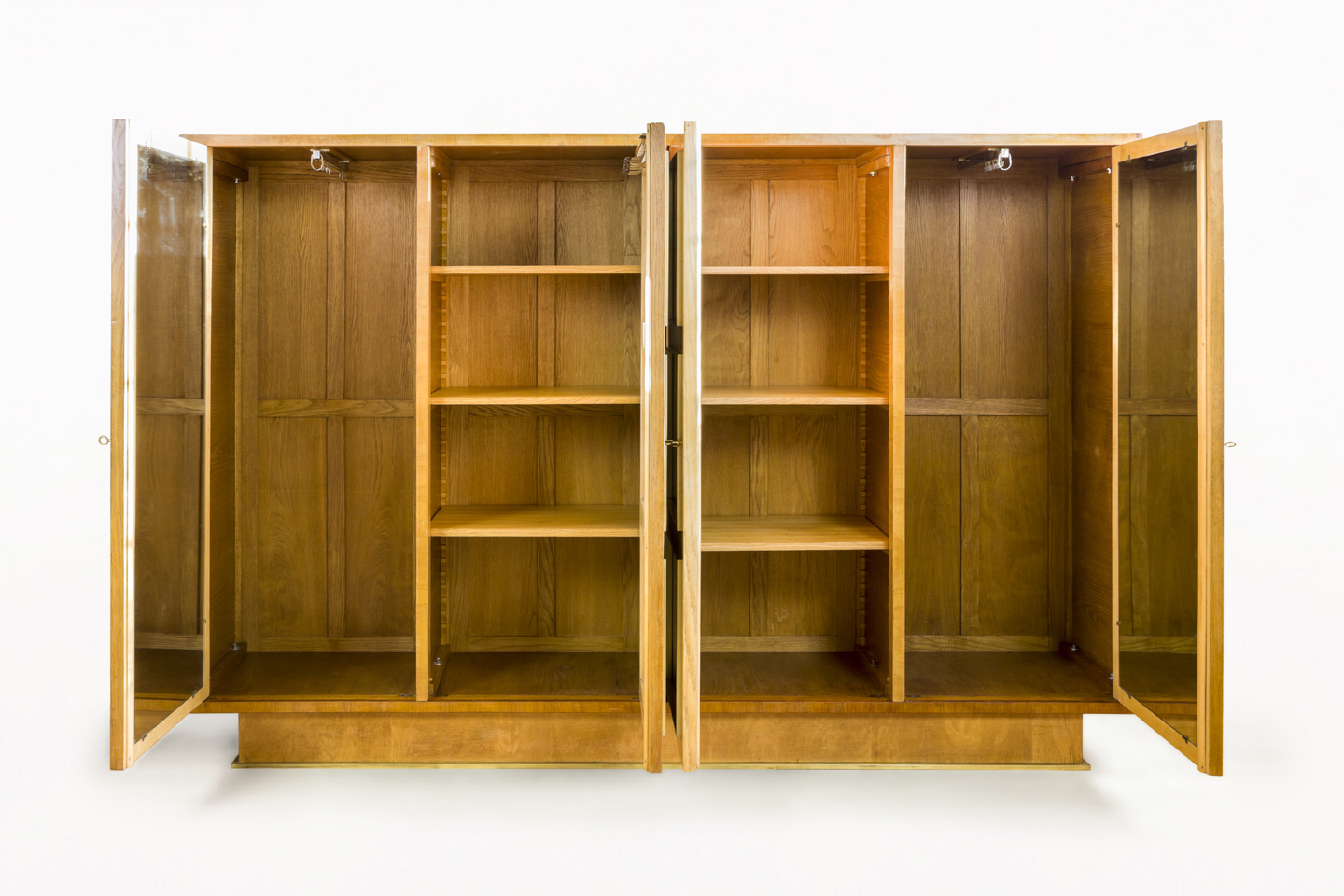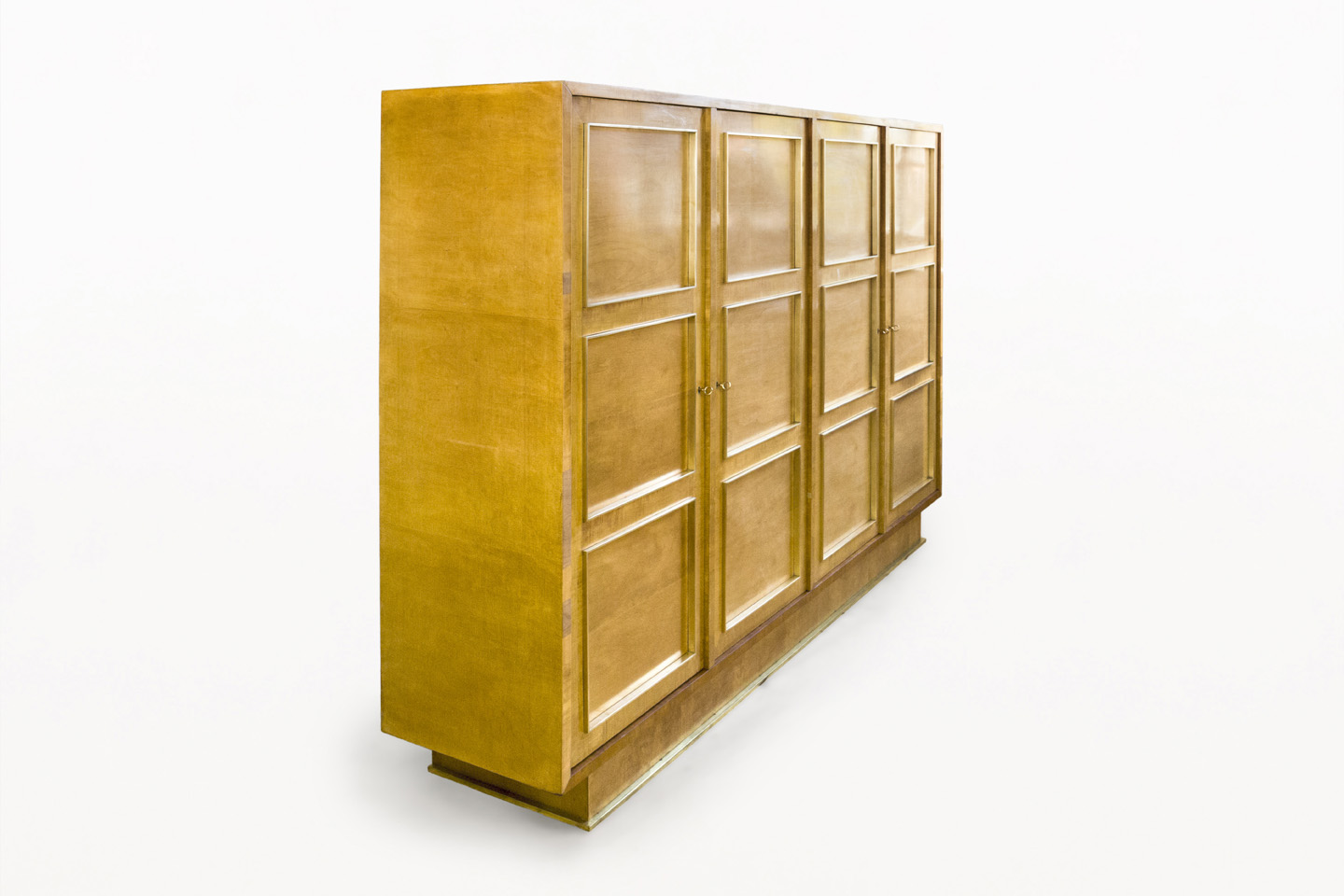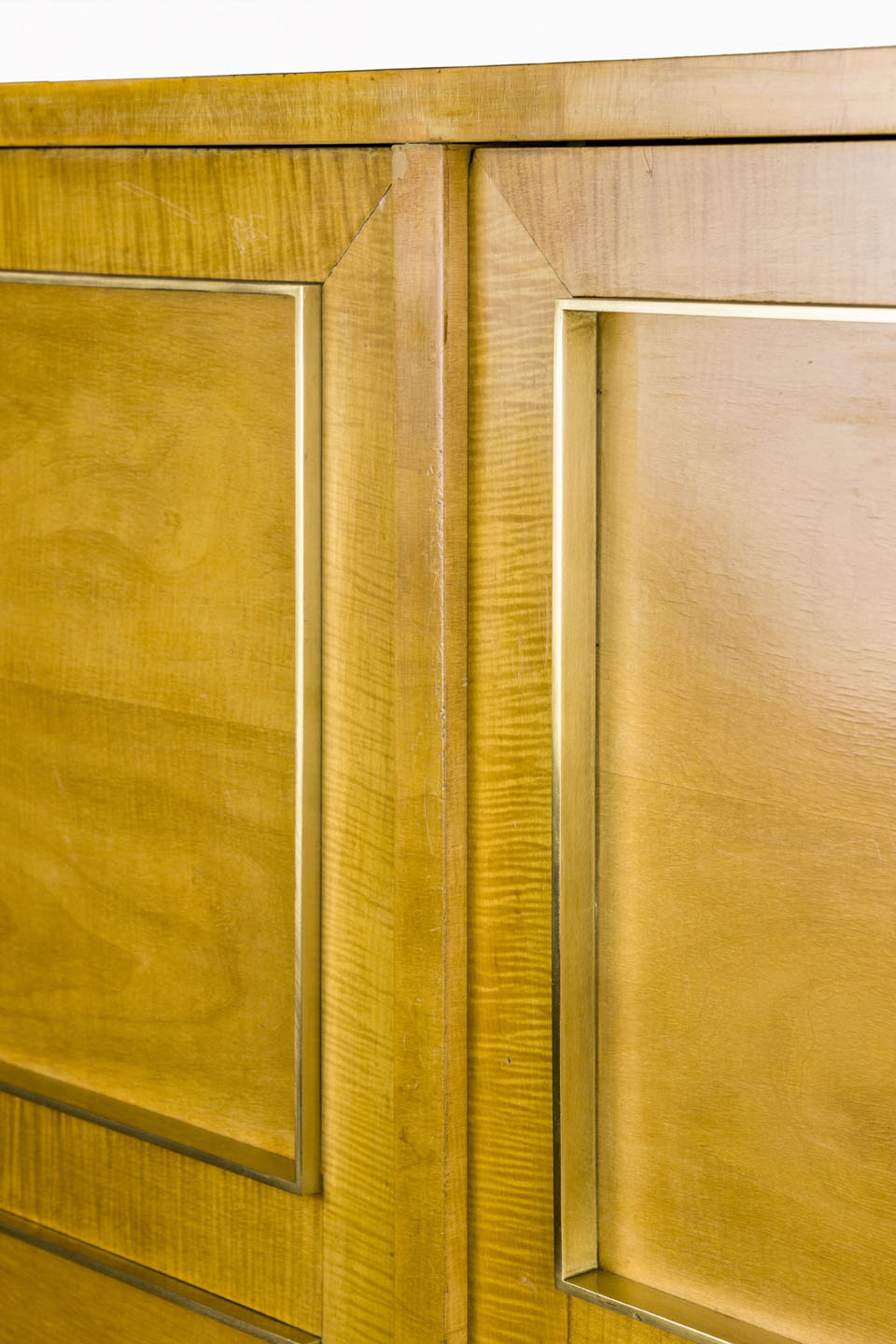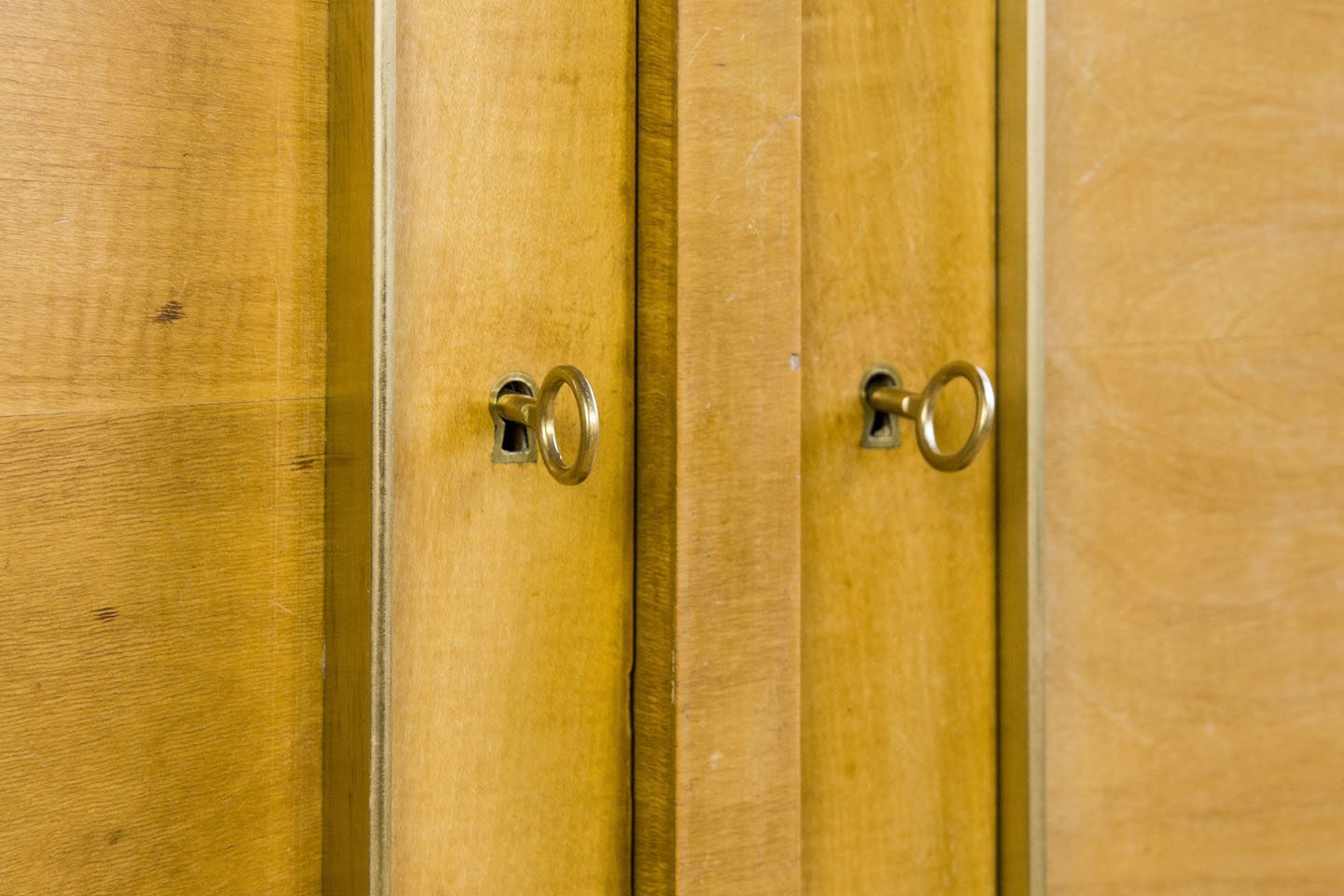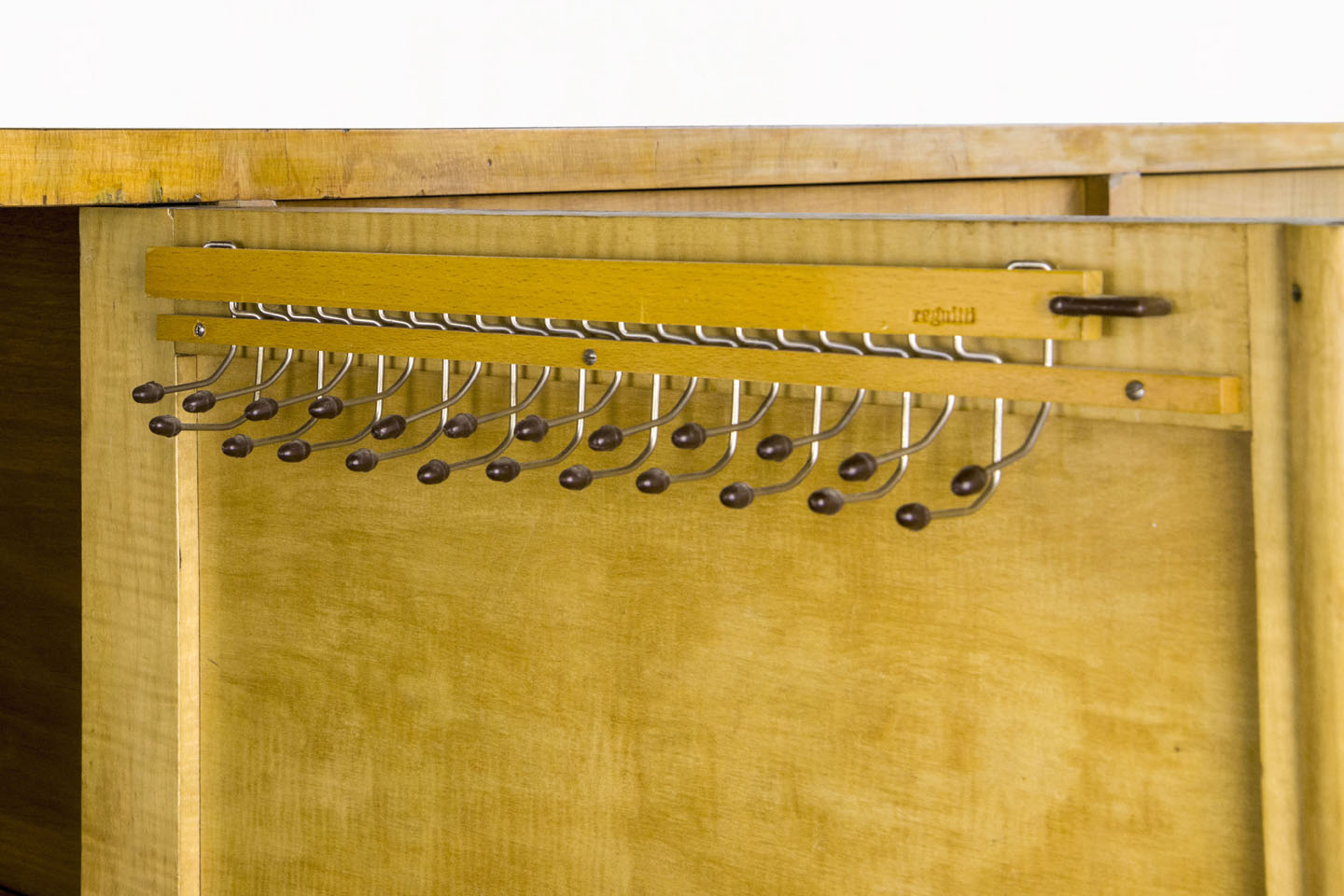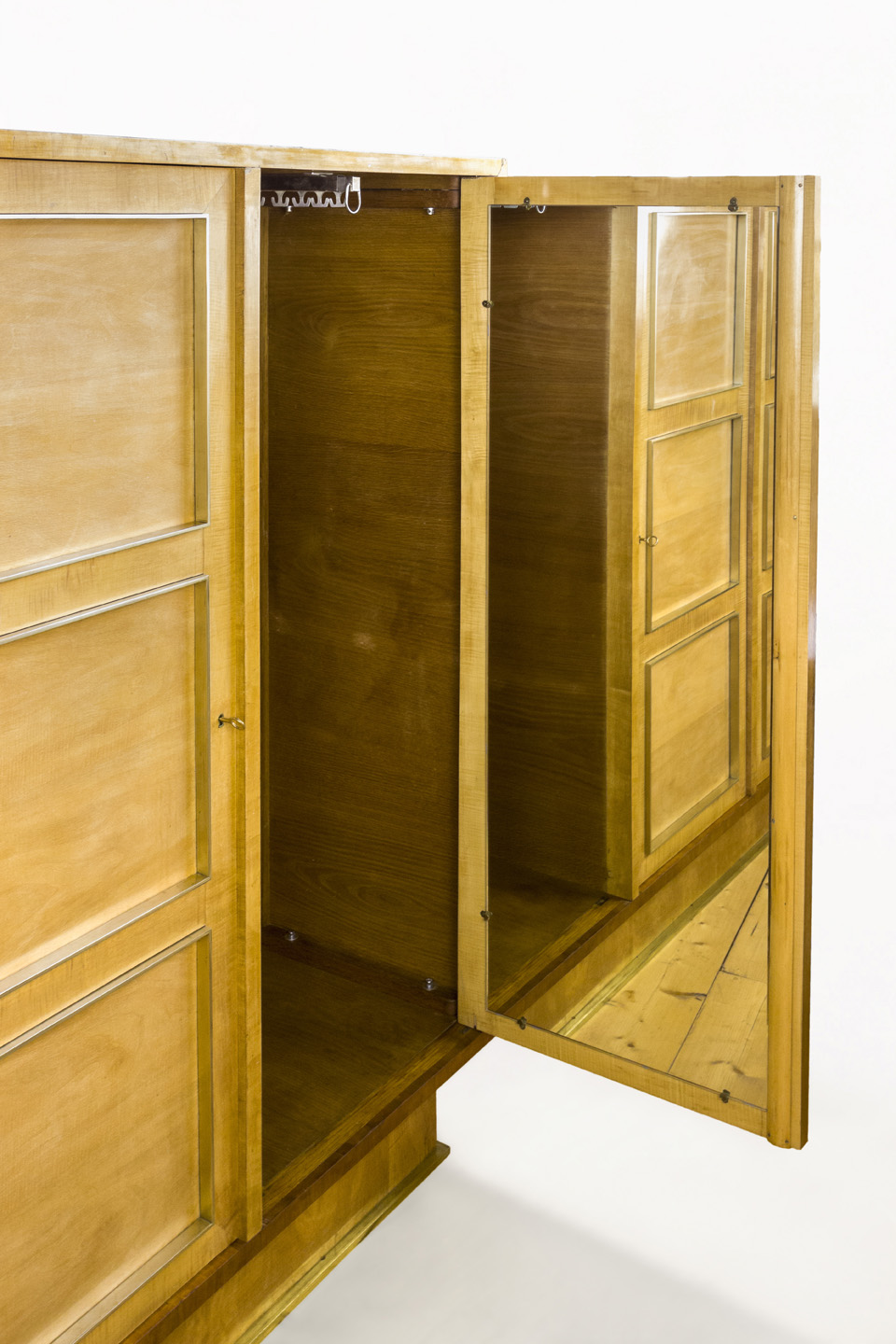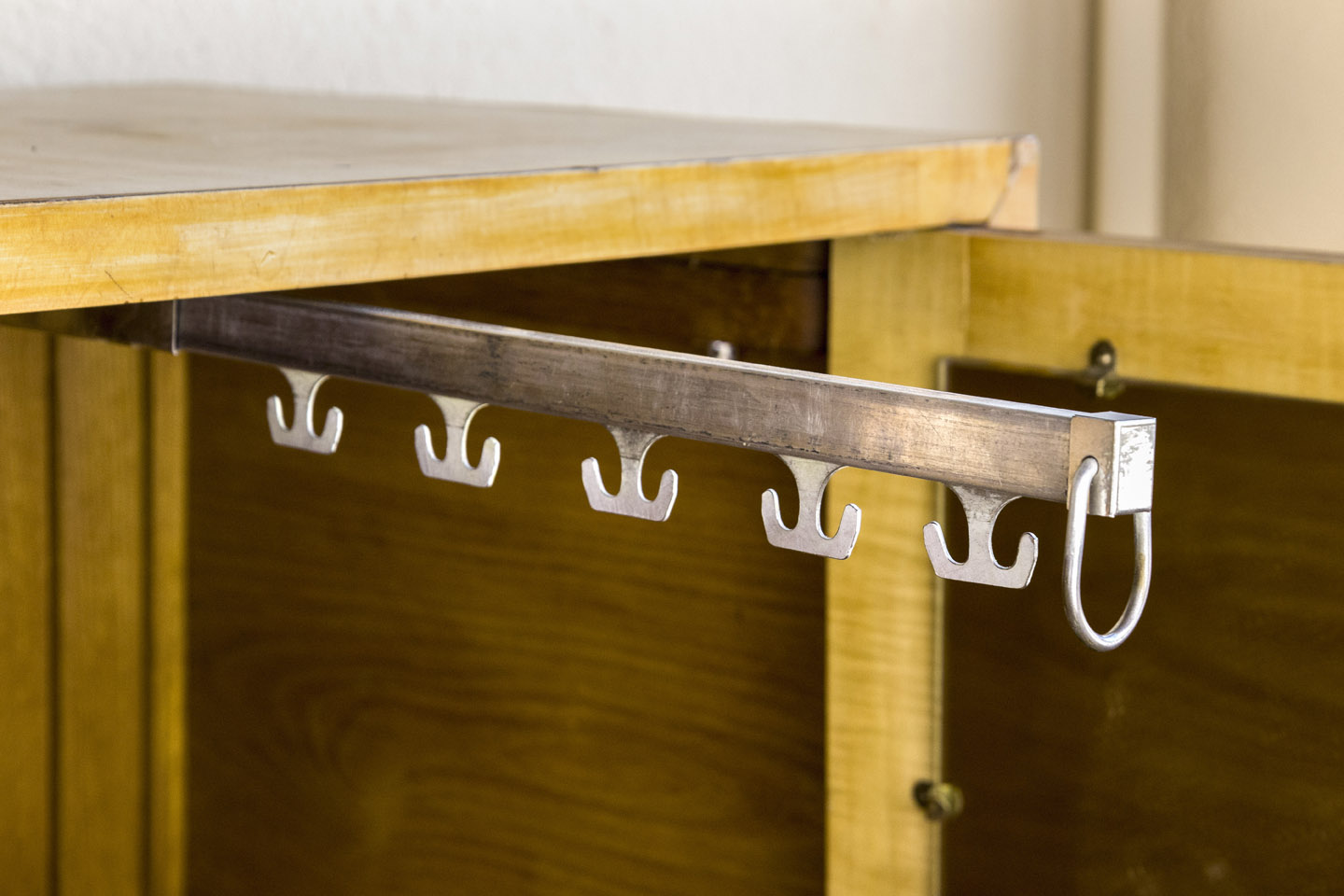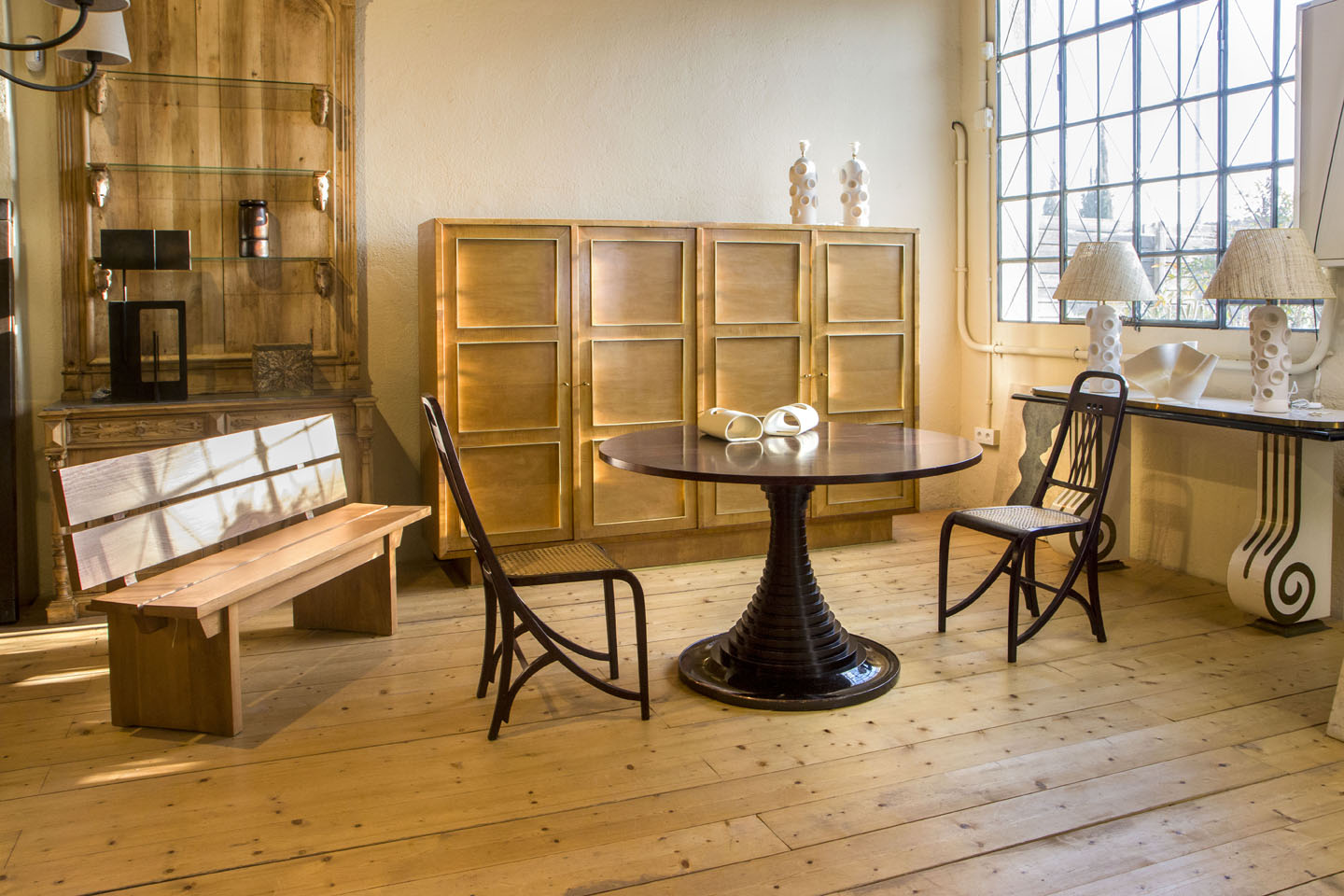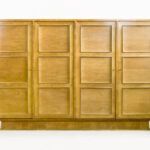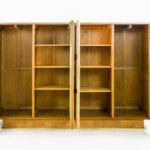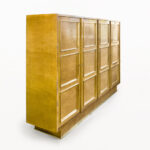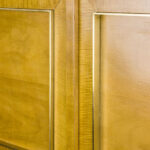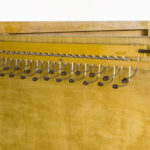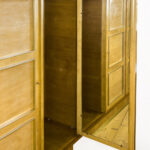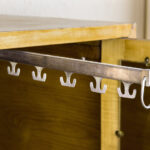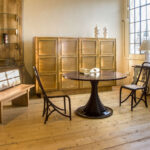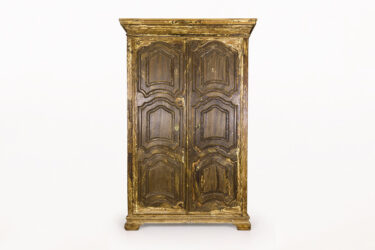Mid-Century Jean Royere Wardrobe, circa 1950, France (AR0017)
DESCRIPTION: Walnut veneer storage cabinet with quadrangular opening and four doors decorated with gilded brass frame. Circa 1950, France.
CONDITION: Very good condition. Wear consistent with age and use.
DIMENSIONS: Height: 159cm (62.40in) Width: 240cm (58.66in) Depth: 50cm (17.52in)
ABOUT THE DESIGNER: Jean Royère (French, 1902–1981) was an important furniture and interior designer of the 20th century. Born into a distinguished family, Royère originally worked as a banker before quitting in 1931 to pursue his passion for design. Following his apprenticeship with Parisian furniture maker Pierre Gouffe, Royère went on to win a contest to design the brasserie for the luxurious Hotel Carlton on the Champs-Élysées in 1934. From there, his fame quickly grew, and he went on to found his own company in 1944, designing custom furniture for high-end clients. Throughout his life, Royère traveled extensively, notably opening offices in Cairo, Beirut, Teheran, and Sao Paulo. Some of his most enthusiastic patrons included King Farouk, King Hussein of Jordan, and the Shah of Iran. His most memorable work was often considered whimsical or even eccentric, featuring unusual elements such as furry armchairs, bright pink interiors, and curly table legs. Though highly influential and sought-after during his life, following his death in 1981 his designs fell out of favor, and were at risk of being forgotten—until a renewed interest during the late 1990s brought attention to his legacy once again.
ABOUT THE STYLE: Mid-Century Modern (MCM) is a design movement in interior, product, graphic design, architecture, and urban development that was popular from roughly 1945 to 1969, during the post–World War II period. The term was used descriptively as early as the mid-1950s and was defined as a design movement by Cara Greenberg in her 1984 book Mid-Century Modern: Furniture of the 1950s. It is now recognized by scholars and museums worldwide as a significant design movement. The MCM design aesthetic is modern in style and construction, aligned with the Modernist movement of the period. It is typically characterized by clean, simple lines and honest use of materials, and it generally does not include decorative

